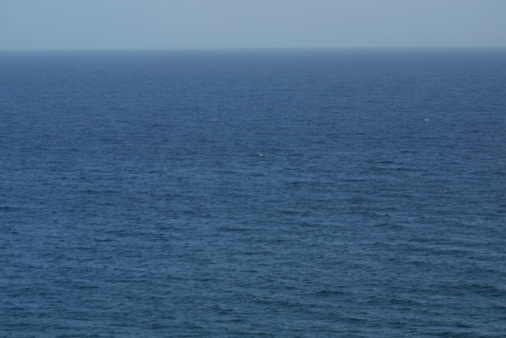A new study from the University of Southern California finds that the cool waters off the coast of Los Angeles are acting as a carbon sink by sequestering more carbon than other parts of the world’s oceans.
Lisa Collins, a lecturer at the USC Dornsife College, spent four years studying samples from floating sediment traps in the San Pedro Basin as a way to determine what’s falling through the water column and how deep it’s getting.
“We have a pretty good idea of how much biomass is produced in the ocean, but we don’t have a great idea of how much of that biomass actually gets down through the water column and ultimately to the sediment,” said Collins.
One reason that matters, she says, is that phytoplankton, which make up much of the biomass, live and grow by taking up sunlight and carbon dioxide, just like plants on land do. When the phytoplankton die, they sink, taking that stored carbon down the water column with them. If they make it all the way to the mud at the bottom of the ocean, Collins says, that carbon will be sequestered there for hundreds or thousands of years or more.
“San Pedro Basin is a sink for carbon,” said Collins.
She said there’s more carbon getting sequestered there than in other areas of the world where similar studies have been conducted. The reason, she said, is the relatively cool water temperatures in the region.
“The microbes that are chewing up and eating up that carbon are utilizing that carbon as particles are sinking,” said Collins. “In the warmer waters, they can work faster, and so are able to eat up more of the carbon. So the net result is that less carbon makes it to the bottom.”
Once microbes eat the carbon, they then “breathe” it out said Collins, releasing it back in the water and the atmosphere.
Within the San Pedro Basin, Collins found differences in the amount of carbon making it to the sea floor depending on the season and the weather across the four years. She said she’s hoping this kind of detailed information can help climate modelers make more accurate predictions about how the ocean is going to respond to climate change.
“When we think generally about how the world is warming up and is predicted to continue warming, it’s something we should pay attention to,” said Collins, “because not only is it going to affect us on land, but if we’re talking about temperatures getting warmer in the ocean as well, what we’ll probably see is that the oceans won’t be taking up as much carbon.”
The study is published in the August issue of Deep-Sea Research I.

